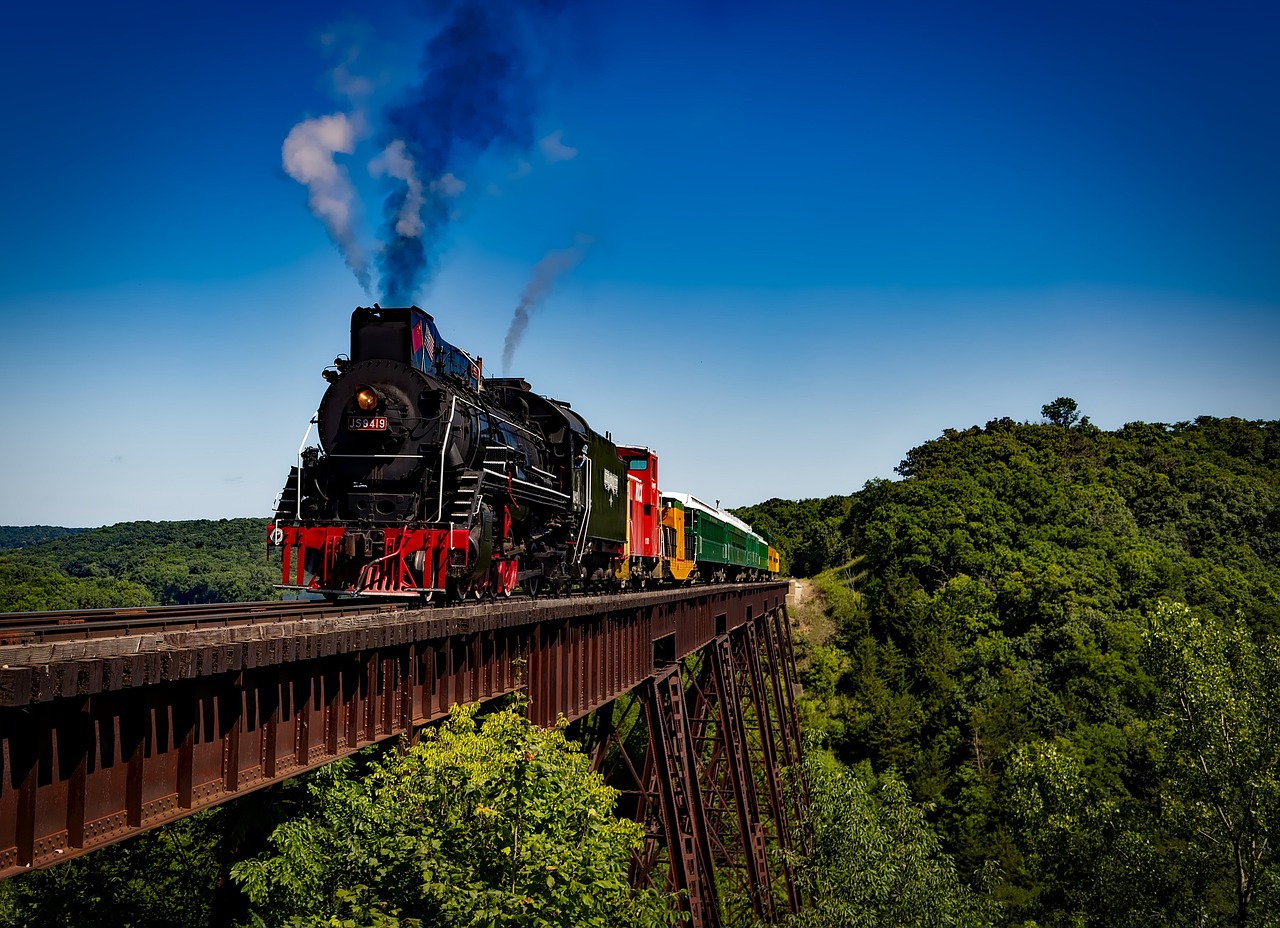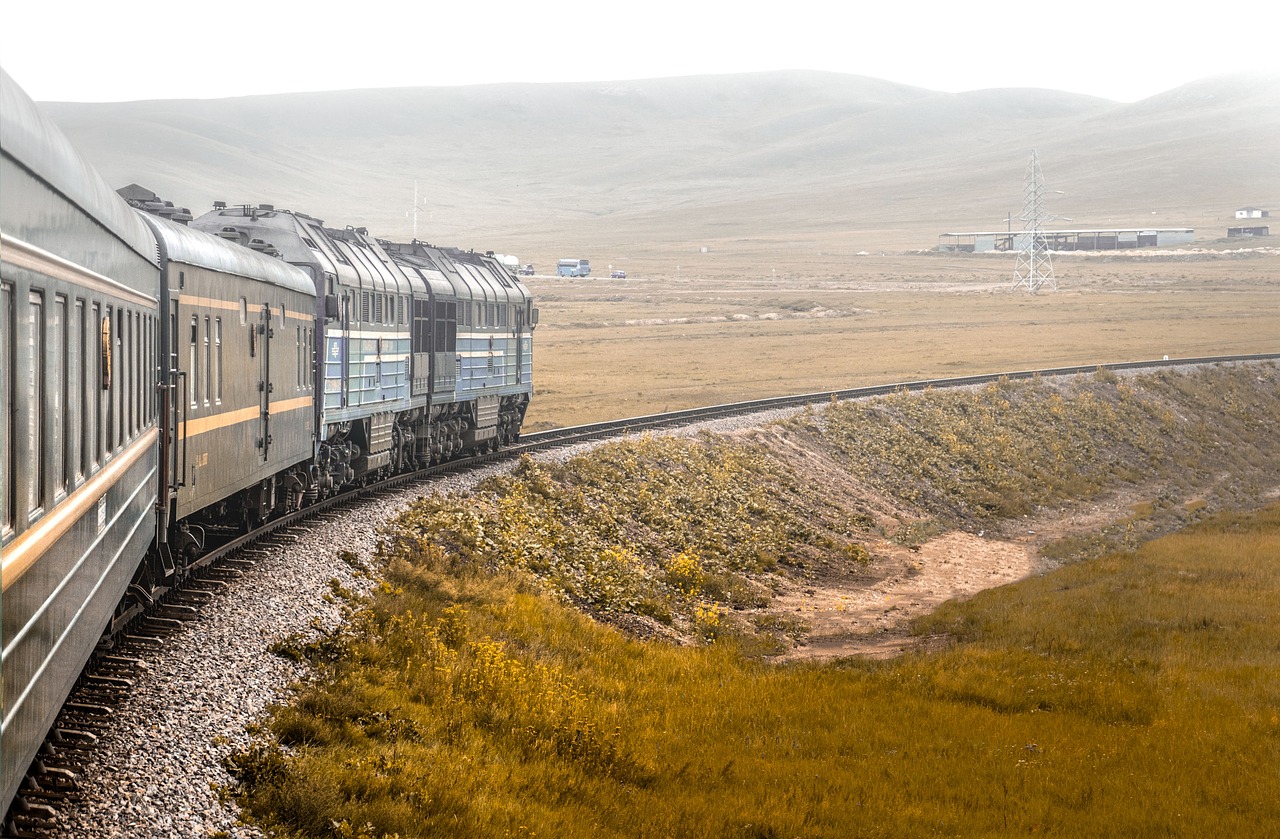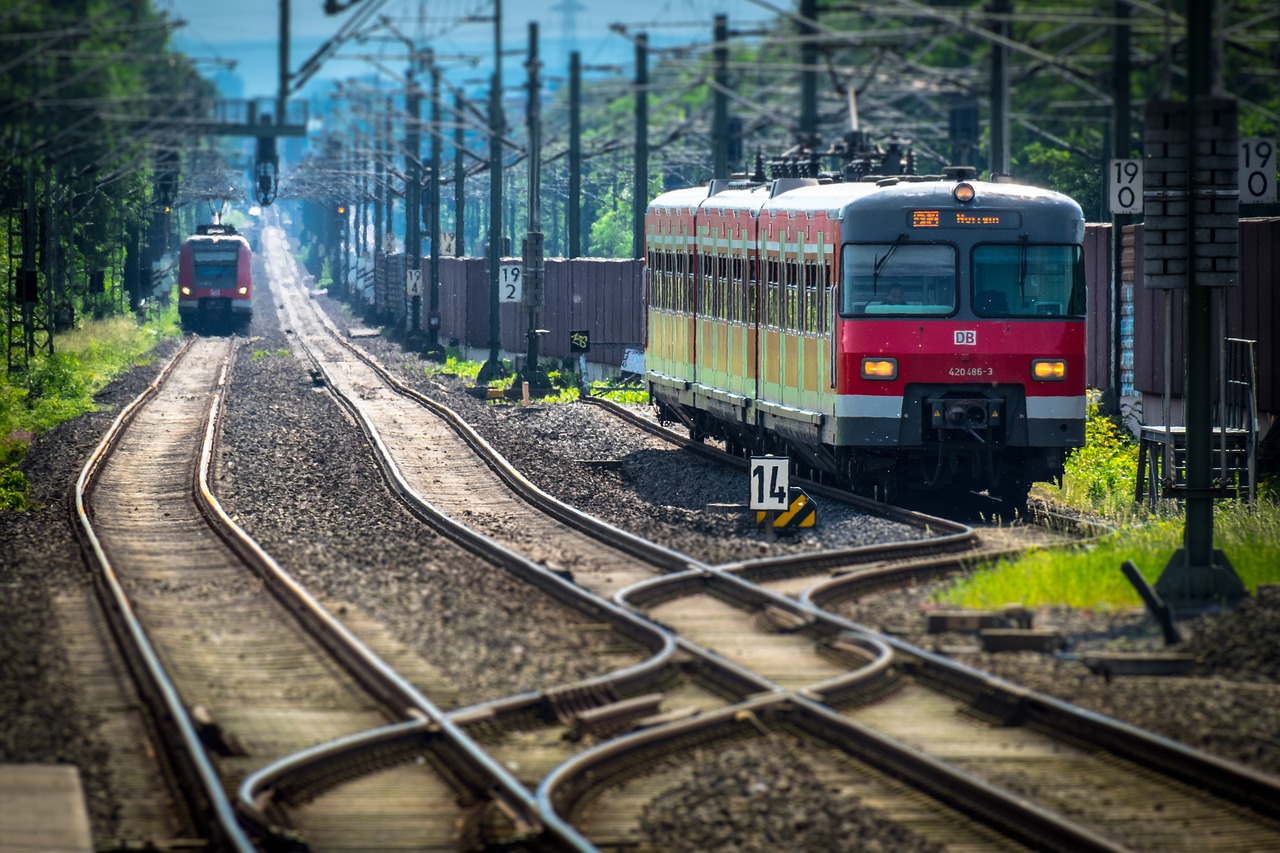With the continuous development of international trade in China, rail freight shipping plays an increasingly important role in China-Europe trade. The China-Europe Railway is a rail freight shipping service between China and Europe, connecting China with Europe and providing a fast and reliable logistics transportation channel for China-Europe trade. This article will introduce the concepts, advantages, costs, considerations, FAQ related to China-Europe rail freight shipping and freight forwarding services. It aims to provide readers with a more comprehensive and in-depth understanding.
Overview of China-Europe Railway
The China-Europe Railway refers to the railway freight services connecting China and Europe, also known as China-Europe trains. China-Europe trains are increasingly favored and adopted by international trade enterprises due to their speed, efficiency, and reliability as a new international rail freight shipping service type.
JIKE Note: For a free quote, please contact one of our JIKE shipping experts and they will send you a quote within 48 hours.
China-Europe rail freight shipping mainly reflects its market demand and advantages in the following aspects:
The routes and coverage of China-Europe trains continue to expand and improve. Currently, several fixed routes and services cover major cities and ports in Europe and Asia, including:
1.From cities such as Chongqing, Chengdu, Wuhan, and Zhengzhou in China to the Rhine-Main-Ruhr region in Europe, Poland, Hungary, Austria, and other destinations.
2.From cities such as Harbin, Manzhouli, and Hohhot in China to Russia, Belarus, Germany, and other destinations.
3.From cities such as Shenzhen, Yiwu, and Zhengzhou in China to the Netherlands, Belgium, Germany, and other European destinations.
As a new international rail freight shipping service, the China-Europe Railway has become an important support and growth point for China-Europe trade cooperation.
In China-Europe railway shipping, freight forwarding companies provide specialized services, including container packing, customs clearance, warehousing, and transportation. This prevents customers from dealing with various logistical matters, reducing transportation costs and risks. Additionally, freight forwarding companies can offer different transportation solutions and customized services based on customer needs and cargo characteristics.

Advantages of Rail Freight shipping
Here are some advantages of rail freight shipping analyzed from the perspective of freight forwarders:
Suitable for bulk cargo transportation: Rail freight shipping is suitable for transporting bulk cargo such as automobiles, machinery, equipment, and chemicals. Rail freight shipping has a large transport capacity, allowing for the carriage of large quantities of goods. Additionally, with special railway container transport methods, more transportation options and flexibility are available.
Faster transport speed: Rail freight shipping offers faster transit times than sea and land transportation. For example, the China-Europe Railway Express enables direct transportation between major cities in China and Europe, resulting in shorter transit times than sea and land transportation.
Relatively lower costs: Rail freight shipping generally has lower transportation costs. It avoids multiple transshipments and additional expenses, such as security checks and warehousing fees in air transportation.
Safety and reliability: Rail freight shipping provides higher transport security, protecting goods during transit. Additionally, rail freight shipping offers higher reliability due to fewer external factors affecting railway traffic.
Environmental advantages: Rail freight shipping is a relatively environmentally friendly mode of transport, reducing air and marine pollution. Furthermore, rail freight shipping helps alleviate issues like road congestion and vehicle emissions compared to other transportation modes.
In conclusion, rail freight shipping has advantages in bulk cargo transportation, faster transit times, and reliability. It also offers lower transportation costs and environmental benefits. Freight forwarders can choose and combine rail freight shipping based on actual needs.
Types of goods for Rail Freight shipping
Rail freight shipping is suitable for various types of goods. Here are some common types of goods transported by railways:
Full Container Load (FCL): Rail freight shipping allows for the transport of full containers, meaning goods are loaded into an entire container. This is suitable for large quantities and heavy goods.
Less than Container Load (LCL): Rail freight shipping also supports less than container load shipments, where goods that do not fill an entire container are consolidated and transported together. This is suitable for smaller quantities of goods.
Charter booking: Shippers can book an entire train for transportation, suitable for large-volume goods such as raw materials and consumer products.
Cold chain transportation: Rail freight shipping can also provide cold chain transportation services for goods that require low temperatures or constant temperature conditions, such as frozen food and pharmaceuticals.
Dangerous goods transportation: Rail freight shipping can handle the transportation of dangerous goods but must comply with relevant national regulations and requirements, such as transporting them in designated compartments and using appropriate labeling.
In summary, rail freight shipping is suitable for various types of goods. Shippers can choose different transportation modes and services based on their specific needs.

Necessary documents
As a mode of international freight transportation, rail freight shipping also requires necessary documents to ensure the legality and security of goods. Here are some common documents required for rail freight shipping:
Railway Bill of Lading: It is one of the fundamental documents in the transportation process, similar to a bill of lading in sea transportation. The railway bill of lading is a transportation contract issued by the freight forwarder to the shipper, proving that the goods have been shipped, and the shipper can claim the goods with this document.
Commercial Invoice: A commercial document demonstrates the value of goods, the buyer-seller relationship, and payment terms. The commercial invoice is an important document for customs clearance and applies to rail freight shipping.
Packing List: A detailed list that records the packaging and quantity of goods, including the name, quantity, net weight, gross weight, packaging method, and transport markings.
Documents related to the origin and destination: In rail freight shipping, relevant documents for the origin and destination are also necessary. For example, export customs declaration and export approval documents are required for exporting goods, while import customs declaration and import licenses are required for imported goods.
It is important to note that the requirements for necessary documents in rail freight shipping may vary slightly in different countries and regions. Shippers should consult in detail based on the destination country and the nature of the goods to ensure that the provided documents comply with local regulations and requirements.
Logistics process
The logistics process of China-Europe rail freight shipping is a complex system that requires coordination among freight forwarders, suppliers, and customers. Here is an overview of the logistics process for China-Europe rail freight:
1.Booking
Customers must contact the freight forwarder and provide detailed information about the goods, such as the name, quantity, weight, volume, and destination. The freight forwarder will offer suitable China-Europe rail freight services based on the customer's requirements and assist in completing the booking procedures.
2.Delivery shipments to container freght station
The freight forwarder will coordinate with suppliers and customers to ensure that the goods are delivered to the container freght station on time and classify and mark the goods accordingly.
3.Customs declaration
The freight forwarder will assist the customer in completing the Chinese customs declaration procedures, including declaring the customs codes, value, quantity, quality, and other information of the goods and issuing the necessary customs documents.
4.Transportation
The freight forwarder will choose the suitable China-Europe rail freight service for transporting the goods and arrange the transportation plan. China-Europe rail freight usually has shorter transit times than sea freight and lower costs compared to air freight, enabling goods to reach their destination relatively quickly.
5.Customs clearance
The freight forwarder will assist the customer in completing the customs clearance procedures in your country until the cargo is released by customs.
6.Delivery
The freight forwarder will assist the customer in picking up the container at the station and delivering the goods to the designated location.
How long does it take?
The time it takes to transport goods from China by railway depends on several factors, such as the type of goods, the distance between the origin and destination, and the situation at transshipment stations. Here are some common railway freight routes from China and their estimated transit times:
China to Europe via China-Europe rail freight services usually take 14 to 22 days, depending on the destination and specific train schedules.
Railway freight from China to Central Asia typically takes about 7 to 10 days, depending on the type of goods, distance, and transshipment stations.
Railway freight from China to Russia usually takes about 10 to 14 days, with variations based on factors like the type of goods, distance, and transshipment stations.
It should be noted that rail freight shipping takes longer than ocean shipping. However, rail freight shipping offers relatively lower freight costs and is considered safe and reliable. Therefore, rail freight shipping is also a good choice when the shipment is not time-sensitive.
Price of China-Europe Rail Freight
The price of China-Europe rail freight shipping is a concern for many customers. Below, we will briefly introduce the components, influencing factors, calculation methods, competitiveness, and comparative analysis of China-Europe rail freight shipping prices.
1.Components and influencing factors of the price:
The price of China-Europe rail freight shipping consists of various aspects, including transportation costs, insurance costs, customs clearance fees, packaging costs, warehousing costs, and more. The composition of these costs varies, and factors influencing the price are diverse, mainly including the type of goods, volume, origin, and destination.
2.How to calculate the price of China-Europe rail freight shipping:
First, confirm the basic information of the goods, including origin, destination, type, quantity, volume, and weight. Next, calculate various expenses such as transportation costs(LCL will be around USD 75/cbm-195/cbm; FCL will be around USD 7500-USD 9900), insurance costs, customs clearance fees, packaging costs, and warehousing costs. Finally, based on the actual situation of the goods and considering all cost factors, the total price of China-Europe rail freight shipping is calculated.
China-Europe rail freight shipping has certain competitiveness compared to other modes of transportation. Compared to other transportation methods, China-Europe rail freight shipping demonstrates freight time, safety, reliability, and cost advantages.

Objects of China-Europe Rail Freight Shipping
China-Europe rail freight shipping encompasses various types of goods and businesses, including but not limited to the following categories:
1. Large manufacturing enterprises: Manufacturing industries such as machinery, electronics, automobiles, etc., often require long-distance transportation of large high-value goods. The safety and reliability of China-Europe rail freight shipping can meet their needs.
2. Trading companies: China-Europe rail freight shipping is suitable for import and export trading companies, especially for goods with high requirements for transportation time and safety, such as food, cosmetics, etc. Rail freight shipping is faster than sea freight and more cost-effective than air freight.
3. E-commerce companies: China-Europe rail freight shipping has become a new option for e-commerce companies, providing faster, more stable, and more economical logistics solutions. For heavy and bulky goods, rail freight shipping is cheaper than air freight and express delivery, and faster than sea freight.
4. Agricultural product enterprises: China-Europe rail freight shipping is also suitable for agricultural production enterprises that require fast transportation, such as fresh fruits, meat, etc. Compared to sea freight, rail freight shipping is faster, and compared to air freight and express delivery, it is more affordable, allowing for cost reduction while ensuring the freshness of the goods.
In summary, China-Europe rail freight shipping can meet the needs of different types of businesses and goods, helping them achieve faster and more cost-effective international logistics transportation.
Prohibited Items
As an important mode of freight transportation, rail freight shipping also has some prohibited items to consider. Here are some common examples of prohibited items for rail freight shipping:
Flammable and explosive materials such as gunpowder, explosives, gasoline, stone containing the radioactive material, and gas.
Toxic and hazardous substances such as highly toxic, corrosive, radioactive, etc.
Weapons, firearms, ammunition, and other dangerous goods.
Illegal items such as gambling, pornography, and subversive propaganda materials.
Items involving national secrets.
Prohibited imports of animals, plants, etc.
During rail freight shipping, goods may pass through multiple countries or regions with different jurisdictional regulations, and the scope of prohibited items may vary. Therefore, freight forwarders need to understand the regulations of each jurisdiction carefully before transportation, ensuring that the transported goods comply with local regulatory requirements to avoid legal disputes and financial losses caused by transporting prohibited items.

International trade terms in rail freight
The international trade terms used in rail freight shipping include the following:
1.EXW (Ex Works): This term indicates that the seller delivers the goods at the place specified by the buyer (usually the seller's factory), and the buyer bears all the transportation and other costs until the goods arrive at the buyer’s doorstep. Which means the seller is only responsible for making the goods available at the specified place, while the buyer is responsible for the remaining costs and risks.
2.FOB (Free on Board): This term indicates that the seller is responsible for delivering the goods to the train station yard. The FOB price includes trucking, loading costs and local charge at the departure station but excludes other costs, such as railway freight and insurance.
3.CIF (Cost, Insurance and Freight): This term indicates that the seller is responsible for transporting the goods to the destination train station as agreed in the contract, including railway freight, and insurance. It does not include destination port charges, import duties, value-added tax, customs clearance, and other costs in the destination country.
4.DAP (Delivered At Place): This term indicates that the seller delivers the goods to the place specified by the buyer as agreed in the contract. In this case, the seller is responsible for all the costs only excluding customs clearance, import duties, and value-added tax.
5.DDP (Delivered Duty Paid): This term refers to the seller's responsibility, as agreed in the contract, to deliver the goods to the buyer's specified location and bear all costs. Buyers don’t need to pay any charges; they only need to receive the goods at their doorstep!
The above are common international trade terms applicable in rail freight shipping. Freight forwarders need to specify the trade terms adopted by both parties during the negotiation of transportation contracts to avoid disputes.
Considerations for China-Europe railway transport
China-Europe railway transport, as a cross-border transportation mode, requires attention to the following aspects:
Prohibited items: During transportation, it is important to be aware of prohibited items. Items such as flammable, explosive, toxic, hazardous, or liquid substances may require special handling or alternative transportation methods.
Packaging of goods: Goods should be packaged according to the standards of railway transport to prevent damage, leakage, or other issues during transportation.
Transportation contracts: When selecting China-Europe rail transport services, it is necessary to sign transportation contracts with freight forwarders or railway companies to clarify the responsibilities and obligations of both parties.
Customs procedures: Cross-border transportation involves completing relevant customs procedures, including customs declarations and necessary documentation, which should be checked and prepared in advance. So, please find a reliable freight forwarder or customs broker to do the job for you. They will check based on a product name and local customs rules. Also, you can search for them on your country’s customs website.
Insurance matters: Shippers may consider purchasing cargo transportation insurance to mitigate the risks of loss or damage to goods.
Time considerations: It is important to carefully check the current transit time of the train shift you choose and the latest operation status of the train to avoid delays.

Why Choose Jike as your agent in rail freight shipping from China
Rail freight shipping from China is a comprehensive logistics method, so you need a freight forwarder to help you. Here are the advantages and services of choosing JIKE as a Rail Freight Forwarder:
Professional knowledge and experience
Jike possesses expertise and experience in assisting clients in solving various logistics issues, including transportation planning, cargo insurance, clearance, warehousing, and distribution.
Cost-effectiveness
We have worked with railway operators for 9 years and got a competitive discount and commission from them, which makes our cost slower and much lower than others so we can offer clients competitive prices. Also, we have close business relationship with railway operators. Any updated rules and operation status we will know faster than the market.
Risk management
We help clients manage logistics risks, including cargo loss, damage, delays, and customs clearance, enhancing transaction security.
Service offerings
We offer various services, including cargo transportation, insurance, customs clearance, warehousing, distribution, and supply chain management. Jike can tailor services to meet specific client needs.
Flexible payment methods
Clients can choose suitable payment methods such as prepayment, payment on delivery, or monthly settlement.
Choosing the right freight forwarding service provider involves considering service quality, pricing, reputation, experience, and expertise. You can choose by seeking recommendations, conducting market research, and comparing multiple service providers. We hope to be your sole agent after you use our service.
Case study
Here are a few practical examples of China-Europe railway transport cases:
1. Transporting German Automotive Components to China
A German automotive components company needed to transport its products to China. They opted for rail transport, which was more cost-effective than air freight and faster than sea freight. They enlisted the services of Jike to facilitate transportation, including picking up the container at Munich, arranging customs clearance, and document handling. Some issues arose during the first transport, such as the exporter making errors in the shipping documents which made the shipment to be detained en route when inspected. However, Jike promptly resolved these issues, ensuring the timely delivery of the products. After that, they choose us as their sole railway shipping agent. And they let us directly talk and arrange all the documents and shipping with their import company in China. As for them, they don’t need to do anything!
2. Transporting valves Products to Europe
A Chinese valves products company wanted to transport its goods to the European market. Initially, we were their sea freight forwarder, with only several shipments yearly. But later, they want faster shipping, but air shipping is expensive. So they tried our railway freight. We assist with their railway transportation arrangements, including customs clearance and document handling. Actually, we were familiar with their product during the sea freight, so it is easy for us to handle the railway shipping for them. Now, they are one of our biggest railway clients. Their weekly shipments have been transported smoothly, and the products arrive safely at the destination within the specified timeframe.
These case studies highlight the Indispensability of railway shipping and also reflect that selecting a professional railway shipping forwarder can boost your business. Jike will always assist clients with all necessary procedures and promptly resolve any issues during transportation.
Conclusion
China-Europe rail freight shipping is a fast, reliable, safe, energy-saving cross-border transportation method with advantages such as short transit time, low freight costs, and environmental friendliness. As an emerging international freight transportation mode, China-Europe rail freight shipping has been increasingly applied under the "Belt and Road" initiative.
As an important component of the modern logistics industry, freight forwarding provides shippers with comprehensive, multi-level, and personalized logistics services. Their main responsibilities include organizing, coordinating, managing, and optimizing services such as transportation, warehousing, distribution, and customs clearance.
As a reliable professional in China-Europe rail freight shipping, Jike provides various logistics solutions, reduces logistics costs, and makes the process easier for you.
FAQs
Customers may encounter common questions when choosing China-Europe rail freight shipping and forwarding services. Presented below is a compilation of commonly asked questions and their corresponding answers:
| Q: What does railway freight service include? |
| A: Freight forwarding service includes various aspects such as packaging, pick up, trucking, customs clearance, document preparation, transportation tracking, warehousing, insurance, delivery, etc. The freight forwarding service aims to provide customers with comprehensive logistics services, ensuring a seamless experience throughout the logistics process. |
| Q: What should I do if accidents happen during the transportation process? |
| A: The main differences between China-Europe Railway and sea freight lie in transportation time and cost. China-Europe Railway is faster but more expensive compared to sea freight. However, China-Europe Railway can provide more reliable delivery times and easier tracking of goods during transportation. |
| Q: What are the differences between railway freight and sea freight? |
| A: Choosing the right freight forwarding service provider involves considering the company's experience, reputation, service quality, coverage area, and technological capabilities. Selecting a reputable freight forwarding company with a strong track record and excellent service is best. |
| Q: How to choose the right railway freight forwarder? |
| A: Choosing the right freight forwarding service provider involves considering the company's experience, reputation, service quality, coverage area, and attitude and solutions towards accidents. Selecting a reputable freight forwarding company with excellent service is the most important. |


Consult Our Experts